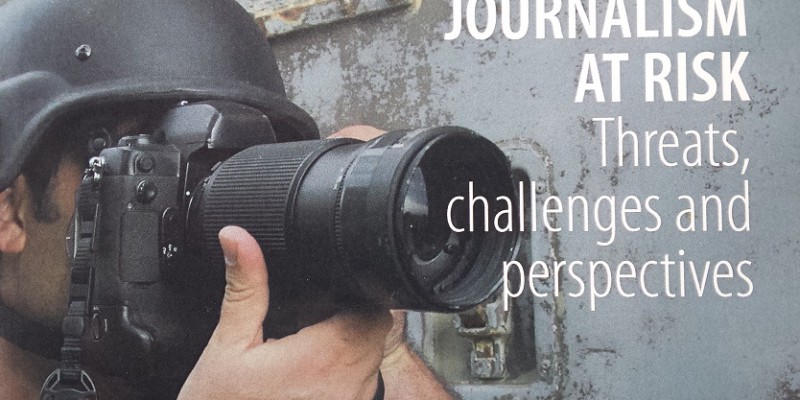New research project: “Journalists at Risk: part of the job?”

The European Federation of Journalists (EFJ) has today welcomed the launch of a new research project by the Council of Europe (CoE) to assess the risk facing journalists across the 47 CoE member states. The EFJ, Reporter without Borders (RSF), International News Safety Institute (INSI) and Index on Censorship, are partners of the project “Journalists at Risk: part of the job?” and a working group to conduct a comprehensive quantitative and qualitative study on unwarranted interference, fear of crime and self-censorship among journalists in Europe, which is one of the most important issues facing the journalism community.
The working life of journalists is often perceived to be dangerous since journalists expose themselves to a number of risk factors for unwarranted interference and consequently may experience high levels of fear. Journalistic activities may expose them to direct physical confrontations, attacks and psychological abuse.
The Council of Europe is committed to promoting the safety of journalists. Through this research, the CoE will help throw more light on the issue. “It’s our duty, as main representative journalists organisation in Europe, to contribute to the research project. By defending journalists’ working conditions and safety, we are strengthening democracy”, said Mogens Blicher Bjerregård, president of the EFJ.
The study will cover more than 1.000 journalists in all 47 CoE member states who will complete a questionnaire exploring the prevalence of unwarranted interference in a representative sample of active journalists.
Unwarranted interference includes attacks on the physical integrity of journalists, the harassment of journalists, the experience of impunity and threats to journalistic sources. It will also explore the extent and prevalence of fear, feelings of alarm or dread caused by a number of contingencies including the expectation of unwarranted interference. Finally, it will explore how these experiences may have a chilling effect on media freedom.
The working group is led by Professor Marilyn Clark from the Department of Psychology, Faculty for Social Wellbeing of the University of Malta.
The completion of the research, publication and presentation to public is expected by the end of 2016.
For more information please contact the CoE Secretariat by Shahin.abbasov@coe.int or +33 (0) 3 88 41 21 95
(Picture credit: CoE)






